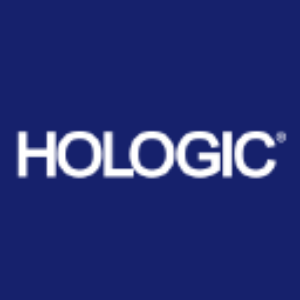Hologic Presents Breast Cancer Index™ Data at SABCS 2021 Showing Net Benefit Predictive Value for Endocrine Therapy Continuation
Hologic, Inc. (NASDAQ: HOLX) announced data showcasing the Breast Cancer Index™ (BCI) as a key tool predicting treatment benefits in hormone receptor-positive (HR+) breast cancer patients. Presented at the 2021 San Antonio Breast Cancer Symposium, findings reveal that BCI predicts recurrence-prevention advantages from extended endocrine therapy (EET) and highlights biomarkers critical for assessing treatment effectiveness. The research emphasizes patient compliance and informed decisions, confirming significant net treatment benefits while considering adverse effects. BCI is unique in guiding individualized treatment decisions.
- BCI predicts significant net treatment benefits from extended endocrine therapy in HR+ breast cancer patients.
- Research confirms the connection between BCI biomarkers, enhancing personalized treatment decisions.
- Findings presented at a prominent conference enhance credibility and visibility for BCI.
- Extended endocrine therapy is associated with serious adverse events, which may affect patient compliance.
- The commercial success of the BCI test is uncertain, as future sales are not guaranteed.
Insights
Analyzing...
Breast Cancer Index reaffirmed as a significant predictive and prognostic diagnostic tool to personalize extended endocrine decisions
“Extended endocrine therapy often comes with tolerability challenges and even significant adverse events,” said study author
BCI Significantly Predicts Net Treatment Benefit (NTB) of EET in HR+ Breast Cancer
Research has shown that EET may reduce the long-term risk of recurrence in HR+ breast cancer, but treatment is often accompanied by serious adverse events (AEs), such as bone toxicity, endometrial cancer, embolisms, heart disease and more.1-3 The NTB study, which examined novel patient subset data (N=908 HR+ patients) from the Investigation on the Duration of Extended Adjuvant Letrozole (IDEAL) study, sought to determine the ability of BCI to predict the net benefit from 2.5 years vs. 5 years of EET. These data suggest patients should consider EET if they have a High HOXB13/IL17BR (H/I) result, and it confirms there is a significant NTB from EET for patients even when balanced against more serious AEs (i.e., Grade 3 or higher).
BCI Biomarkers Independently Contribute to its Ability to Predict EET Benefit
While clinical and pathologic factors are prognostic, they do not reliably predict benefit from EET like BCI [H/I] does.1-4 The Molecular Grade Index (MGI) study assessed the relationship of proliferation (MGI) and endocrine response (H/I) to further support how the BCI assay works. These data confirmed that the two biomarkers contributing to BCI’s risk assessment (H/I and MGI) drove tumor biology, thus validating BCI’s role in offering personalized extended endocrine decisions based on the individual patient’s tumor.
“These data analyzing H/I and MGI genes solidify our understanding of the relationship between these two critical components of BCI,” said study author
About Breast Cancer Index
Breast Cancer Index™ is a gene expression-based test uniquely positioned to provide information to help physicians individualize treatment decisions for patients with early-stage, HR+ breast cancer. This breakthrough test helps oncologists and patients navigate the difficult trade-offs between taking steps to prevent recurrence of their disease and facing significant side effects and safety challenges related to unnecessary treatment. Breast Cancer Index has guideline designation from the
About Hologic
Forward-Looking Statements
This press release may contain forward-looking information that involves risks and uncertainties, including statements about the use of the Breast Cancer Index test. There can be no assurance this test will achieve the benefits described herein or that such benefits will be replicated in any particular manner with respect to an individual patient. The actual effect of the use of the test can only be determined on a case-by-case basis depending on the particular circumstances and patient in question. In addition, there can be no assurance that this test will be commercially successful or achieve any expected level of sales. Hologic expressly disclaims any obligation or undertaking to release publicly any updates or revisions to any such statements presented herein to reflect any change in expectations or any change in events, conditions or circumstances on which any such statements are based.
Hologic, Breast Cancer Index, and The Science of Sure are trademarks and/or registered trademarks of
References
-
Davies C et al.,
Lancet . 2013; 381(9869):805-16. -
Goss PE et al., N Engl J Med. 2016
Jun 5 (Online). - Mamounas EP et al. San Antonio Breast Cancer Symposium, 2016.
- Goss PE et al, J Natl Cancer Inst 2005; 97:1262–71.
SOURCE:
View source version on businesswire.com: https://www.businesswire.com/news/home/20211210005080/en/
Investor Contacts
Vice President, Investor Relations and Corporate Communications
(858) 410-8588
michael.watts@hologic.com
Vice President, Investor Relations
(858) 410-8514
ryan.simon@hologic.com
Media Contact
Vice President, Divisional Communications
(585) 355-5978
jane.mazur@hologic.com
Source:







